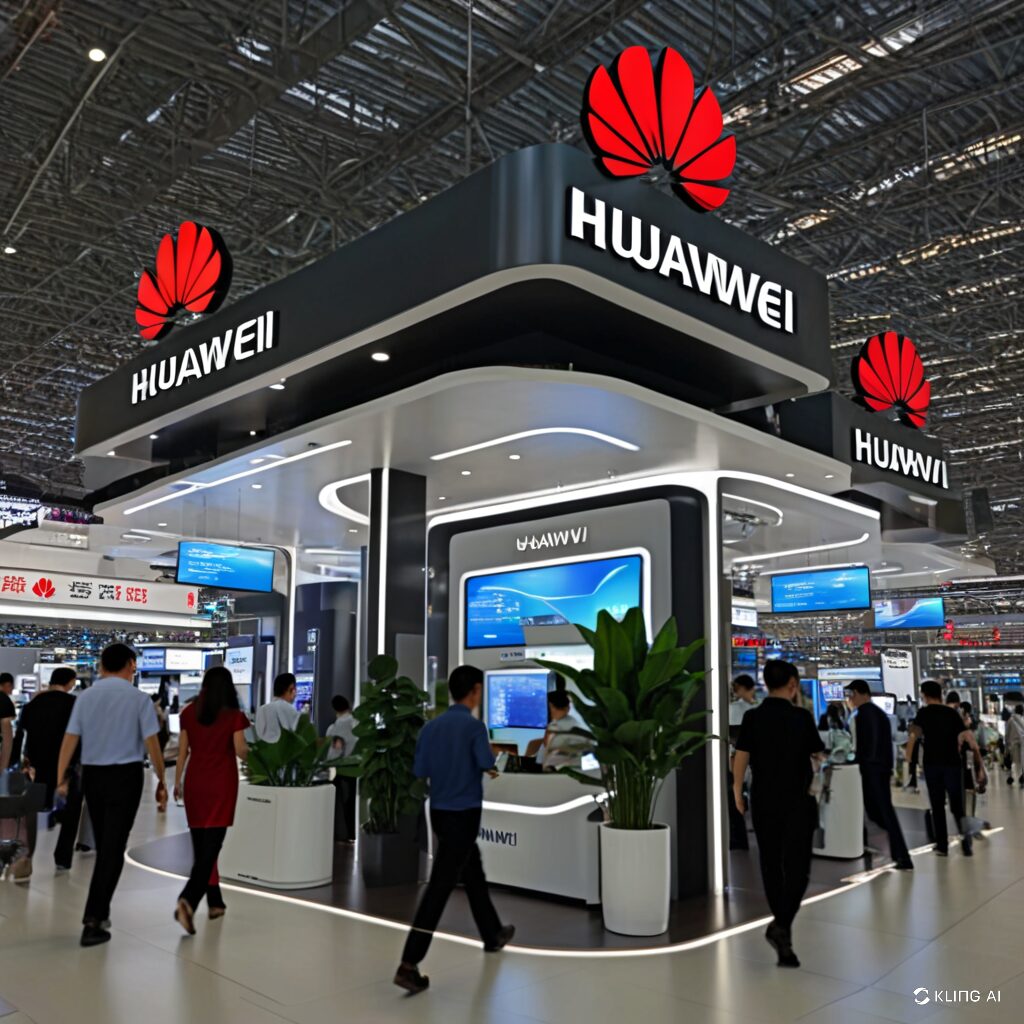Imagine a world where two superpowers are not just racing to build better weapons, but also smarter machines. Huawei’s New AI Chip could challenge Nvidia’s dominance. This shift could reshape the future of AI, global trade, and tech leadership. Read on to understand why this matters and what it could mean for the future of technology.
Overview: Huawei’s New AI Chip
Huawei, one of China’s top tech companies, is preparing to test its newest and most powerful AI chip. This chip aims to match or even replace some high-end Nvidia products. Despite heavy sanctions and trade restrictions from the U.S., China’s semiconductor industry continues to advance steadily. Huawei’s move shows the resilience and ambition of China’s tech sector.
Context: The U.S. has tried to block China’s access to advanced semiconductor technology, but Huawei’s breakthrough suggests the tech rivalry is far from over.
Key Points You Need to Know
1. Huawei’s New AI Chip: A Major AI Breakthrough
- Huawei is developing its most powerful AI processor yet.
- The chip is designed to perform tasks that typically require Nvidia’s advanced chips.
- It will be used for AI model training, data centers, and cloud computing services.
Context: This could offer China a homegrown alternative to U.S. technology, making the country less dependent on foreign suppliers.
2. A Direct Challenge to Nvidia
- Nvidia has dominated the AI chip market globally, especially with its H20 and A100 series.
- Huawei’s chip is expected to rival the performance of Nvidia’s top processors.
Context: If Huawei succeeds, Nvidia’s stronghold in China and possibly other regions could be weakened.
3. U.S. Sanctions and Their Impact
- The U.S. government restricted China’s access to cutting-edge semiconductor tools.
- Despite these hurdles, Huawei continues to innovate and build competitive technology.
Context: Sanctions slowed China but didn’t stop its progress. Huawei’s achievement shows the limits of tech embargoes.
4. Why AI Chips Matter So Much
- AI chips are crucial for training large AI models, running smart factories, autonomous driving, and advanced robotics.
- Better chips mean faster innovation across all industries, from healthcare to finance.
Context: The country that leads in AI chip technology could dominate global AI development.
✅ 5. Huawei’s Strategy Going Forward
- Huawei plans to test the chip internally first.
- If successful, the chip could be deployed in Huawei’s cloud services and offered to Chinese tech firms.
Context: This strategy helps Huawei build a strong domestic AI ecosystem, shielding it from future trade wars.
🔎 The Bigger Picture: Global Implications
- Geopolitical Shift: China’s growing tech independence could lead to a more divided global tech landscape.
- Supply Chain Changes: Countries may diversify suppliers to avoid being dependent on U.S. or Chinese chips.
- AI Innovation Race: Competition could speed up global advancements in AI technology.
Context: The world may see “two Internets” — one led by U.S. technologies, another by China’s ecosystem.
⚖️ Ethical Use of AI: Why It Matters More Than Ever
As AI chips become faster and cheaper, the risk of misuse also grows. Countries and companies must address the ethical challenges tied to AI development:
1. Data Privacy and Surveillance
Advanced AI chips can process vast amounts of data quickly. This raises concerns about surveillance, personal privacy, and abuse of personal information.
2. Fair Competition
Tech power must not lead to monopolies or economic oppression. Fair access to AI technologies is crucial for global equality.
3. Transparency in AI Decisions
AI systems must be explainable and accountable. Black-box AI decisions—where users don’t understand why an AI chose something—could lead to discrimination or mistakes.
4. Sustainability and Energy Use
Training large AI models consumes massive energy. Companies must innovate for energy-efficient AI to protect the environment.
5. International Cooperation
The world needs global standards on AI ethics to prevent misuse. Trust and collaboration between countries are vital.
Context: Ethical Use of AI isn’t just a nice idea. It’s essential for ensuring AI benefits everyone without causing harm.
📊 Final Thoughts: A New Chapter in the AI Race
Huawei’s bold move to challenge Nvidia signals a major shift in the global AI landscape. With China advancing despite U.S. restrictions, the tech race is entering a new, more complex phase.
The future belongs to those who innovate—and those who innovate responsibly.
Keeping an eye on AI breakthroughs, and demanding ethical standards at every step, will shape the AI-driven world of tomorrow.
Stay connected with Emerjable AI News for the latest, clearest, and most impactful updates from the world of Artificial Intelligence!
Latest AI News;
- Meta’s AI bots on Facebook and Instagram forgot Ethical Use of AI
- OpenAI Launches ImageGen in API with Powerful New Features AI News
- Is OpenAI Down? Latest Status Update
- Google Adopts Anthropic’s AI-Data Integration Standard
- Top 10 Best AI Companies in 2025 Ranked by Forbes – Most Innovative & Fastest-Growing Artificial Intelligence Startups
- OpenAI’s New Risk Rules, Nvidia’s $5B Hit & More (April 2025)
- Microsoft Copilot, Google FireSat, Adobe AI, Runway Gen-4 & More
- 7 Jaw-Dropping AI Breakthroughs You Missed This Week – OpenAI, Google, Meta & More!
- Top 10 AI Breakthroughs and Updates
- Latest AI News in the Last 24 Hours 27-4-2025

